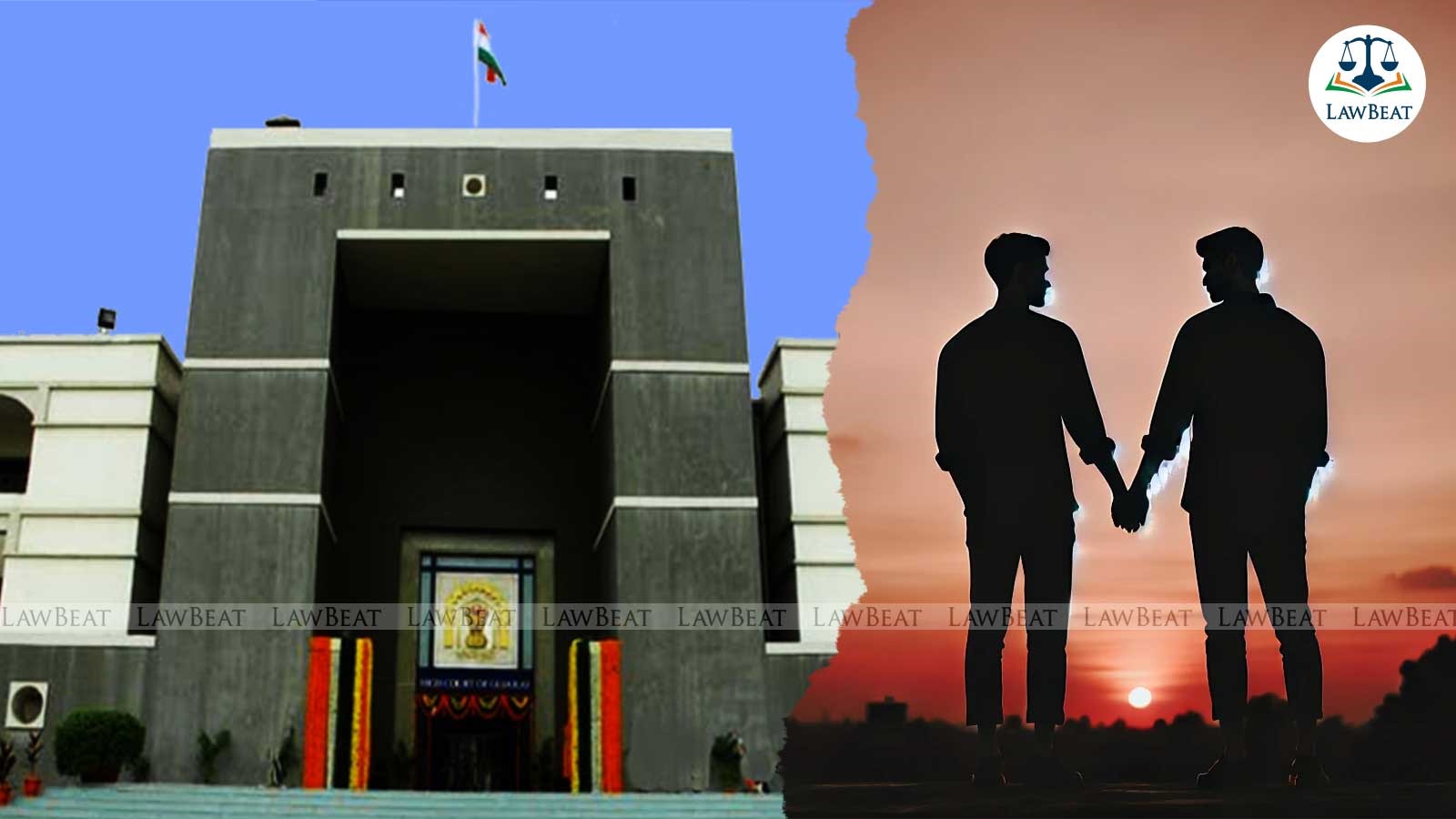Gujarat HC Grants Bail in Section 377 Case Citing Consensual Relationship Between Men Aged 22 & 64

In granting bail, the court concluded, "prima facie, this Court is of the opinion that this is a fit case to exercise discretion and enlarge the applicant on regular bail"
The Gujarat High Court has granted regular bail to a 22-year-old man who was charged under Sections 377 (Unnatural Sexual Offences), Section 386 (Extortion by putting a person in fear of death or grievous hurt), and Section 389 (Extortion by fear of accusation). of the Indian Penal Code (IPC). The court ruled in favour of the applicant after finding prima facie evidence of a consensual relationship between the accused and the 64-year-old complainant.
Justice Hasmukh D. Suthar, presiding over the case, found that the relationship appeared to be consensual in nature, citing the Supreme Court's ruling in Navtej Singh Johar v. Union of India, which decriminalised consensual same-sex relationships. Further, the court found no substantial grounds for the extortion charges and noted that the accusations stemmed from a financial dispute between the two individuals.
The case stems from a First Information Report (FIR) registered at Division Police Station, Junagadh, accusing the applicant of the above stated offences. According to the FIR, the complainant, aged 64, alleged that the younger individual had engaged in non-consensual acts and extorted money from him. However, the applicant contended that the relationship between them was consensual and that the charges arose after a dispute over Rs 10 lakh, which the applicant had lent to the complainant during financial difficulties. Upon seeking repayment, the complainant allegedly retaliated by filing the FIR.
The applicant’s counsel, Advocate Sneh R. Purohit, argued that the accused had been falsely implicated and had no prior criminal record. It was asserted that the relationship was consensual, and the allegations of extortion were unfounded, particularly since there was no evidence of harm or threats made by the applicant. It was also submitted that the relationship between the two men had been consensual and that the charges under Section 377 were invalid, especially after the Supreme Court's ruling in Navtej Singh Johar v. Union of India, which decriminalised consensual same-sex relationships. The applicant, thus, urged the court to grant him bail, pointing out that the investigation was complete, and there was no risk of tampering with evidence or flight risk.
On the other hand, Advocate Asmita Patel, appearing for the respondent-State, opposed the bail application, arguing that the accusations were serious in nature. It was contended that there was substantial evidence of the accused’s involvement in the alleged extortion and unnatural offences.
The court, after careful examination of the facts of the case and reviewing the investigation records, observed that the investigation was already complete, and a charge-sheet had been filed. The court found no indication that the accused posed a flight risk or that he would tamper with evidence. The court emphasised that denying bail would amount to pre-trial punishment, stating that “considering the celebrated principle of bail jurisprudence is that “bail is a rule and jail is exception” as well as the concept of personal liberty guaranteed under Article 21 of the Constitution of India, present application deserves consideration.”
In furtherance, the court noted : “Prima facie, it appears that a consensual relationship was going on between the applicant and the complainant. The present applicant is only 22 years old and has no past antecedents.” With respect to the allegations of extortion under Sections 386 and 389 of the IPC, the court found no substantial evidence to suggest that the accused had threatened the complainant or attempted to extort money.
Consequently, the court granted bail to the accused, however, it clarified that the observations made in the bail order were preliminary and would not affect the trial court's assessment of the evidence during the trial.
Cause Title: X v State of Gujarat
